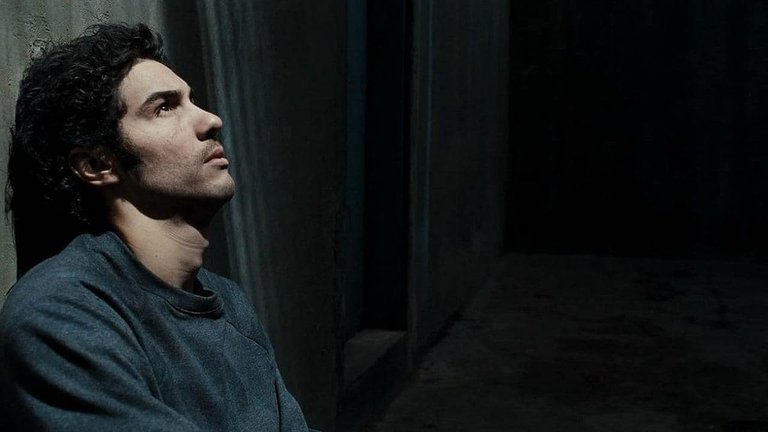Film Review: A Prophet (Un prophète, 2009)

French cinema, at least before Luc Besson, has maintained a reputation as the antithesis of Hollywood. Many French filmmakers have strived to preserve this distinction, even when venturing into typically American genre territory such as gangsters or prison films. Jacques Audiard's 2009 film, A Prophet, is a prime example of this. Set within the confines of a French prison, the film delves into the world of organized crime, blurring the lines between the two genres.
The protagonist, Malik El Djebena, played by Tahar Rahim, is a 19-year-old man of North African descent. Abandoned by his family and illiterate, Malik has turned to a life of crime to survive and has spent years in juvenile detention centres. However, nothing could have prepared him for his first stint in adult prison, where he is sentenced to six years for assaulting a police officer. Lacking family, friends, and connections, Malik is vulnerable and his attempts to keep to himself only invite abuse from other prisoners. However, César Luciani (played by Nils Arestrup), a Corsican mobster and leader of the most powerful prison gang, sees Malik as the perfect person for the delicate task of silencing Reyeb (played by Hichem Yacoubi), a Maghrebi gangster who is about to testify in an important trial. After his attempt to wiggle out of the mission fail, Malik reluctantly agrees and enters Reyeb's cell under the guise of trading his body for drugs. Although the killing turns messy and Malik later has nightmares as a result of his actions, Luciani is pleased and recruits the youth for various errands, some of which involve dealings outside the prison during daytime furloughs. Malik uses this opportunity to improve his chances after leaving prison, teaching himself to read and write with the help of Ryad (played by Adel Bencherif), a friend he made among the other Maghrebi convicts. Malik also proves perceptive and learns the Corsican dialect, which becomes useful later when he turns against his boss and begins to carve out his own criminal empire.
A Prophet premiered at the Cannes Film Festival, where it was warmly received and won the Grand Prix. This success, along with its box office success in France and other European countries, can be attributed to the fact that the protagonist belongs to an underprivileged, immigrant-descended minority and his "rags to riches" story resonates with many members of the audience who belong to the same group. Audiard, who drew inspiration for the film from witnessing the appalling conditions in a French prison during one of his previous film's showings, stated that the intention was to create a hero or role model for disenfranchised youths from notorious banlieus.
In many respects, the plot of A Prophet bears resemblance to Scarface, chronicling the ascent of a criminal from humble beginnings to power. However, Audiard has openly expressed his disdain for Brian De Palma’s iconic film and sought to carve out a different film. The distinctions between the two films are evident; A Prophet confines most of its action within the prison walls. Additionally, the protagonists differ significantly: whereas Tony Montana is impulsive and violent from the outset, Malik begins as a timid youth who engages in violence reluctantly and ultimately prefers intellect over brute force to advance his position. This evolution aligns him more closely with Michael Corleone from The Godfather, a parallel underscored by Audiard in the film's concluding scenes that echo iconic moments from Coppola’s classic.
However, this being a French film with artistic ambitions, Audiard takes a very un-Hollywood approach, using an ultra-realistic, almost quasi-documentary style with plenty of handheld cameras and a music soundtrack by Alexandre Desplat that is almost unnoticeable. This approach is, however, compromised by scenes featuring Malik's dreams and visions, which are supposed to bring some "deeper" meaning and touch of poetry to the otherwise dark and realistic story.
A Prophet benefits greatly from its excellent casting choices. Tahar Rahim, who was a relatively inexperienced actor at the time of production, handles his role exceptionally well, seamlessly transforming his character from a helpless victim into a charismatic leader of men throughout the film's two and a half hour running time. Nils Arestrup is also formidable as the ruthless mob boss who would ultimately be outplayed by his underling and end the film as a weak old man.
While far from perfect and with some of the critical praise being underserved, A Prophet is one of the more interesting and more memorable French films of its time. As such, it can be recommended even to audiences who aren't necessarily interested in unconventional takes on the gangster and prison film genres.
RATING: 7/10 (+++)
Blog in Croatian https://draxblog.com
Blog in English https://draxreview.wordpress.com/
InLeo blog https://inleo.io/@drax.leo
Hiveonboard: https://hiveonboard.com?ref=drax
Rising Star game: https://www.risingstargame.com?referrer=drax
1Inch: https://1inch.exchange/#/r/0x83823d8CCB74F828148258BB4457642124b1328e
BTC donations: 1EWxiMiP6iiG9rger3NuUSd6HByaxQWafG
ETH donations: 0xB305F144323b99e6f8b1d66f5D7DE78B498C32A7
BCH donations: qpvxw0jax79lhmvlgcldkzpqanf03r9cjv8y6gtmk9
Posted Using InLeo Alpha